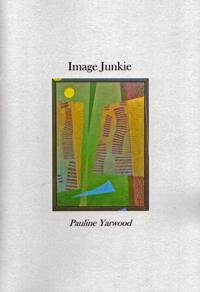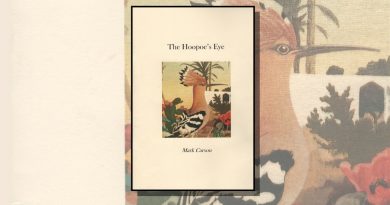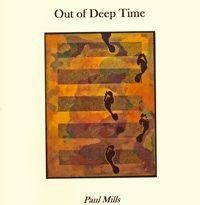Image Junkie by Pauline Yarwood
-Reviewed by Stephen Payne-
Pauline Yarwood’s poems are unshowy, they don’t overreach for poetry. They frequently move me, and make me smile with a pithy or witty insight appositely expressed. There is little evidence of any formal pressure applied to the writing: I didn’t perceive much music, the stanzas and lines are of uneven length, with stanzas as meaning units, line breaks at phrase boundaries. Yet the poems present both as natural and efficient and honed – few failed to grab me.
Let me begin by discussing ‘Interior’, a poem about visiting Freud’s residence and consulting rooms in Vienna. Here is the first of seven stanzas:
You can’t just walk into
Freud’s Viennese apartment:
you climb the grand staircase
imagining all the other crackpots
who’ve trodden these steps before you
and find yourself facing a locked door.
Interpret this as your repressed unconscious.
The device in that last sentence, telling the writer/reader to interpret their experience in psychoanalytic terms, is used three times in the course of the poem. It seems to me it could easily crash, but it doesn’t, the device works. Amusing and accurate, it’s repeated to just the right extent. Perhaps, as a reader, I accept and enjoy it because I’ve fallen for the poem from the very beginning. How could I not smile at “crackpots”? A marvellous word choice, perfect in tone; a risk worth taking.
If this collection of 16 poems has a unifying theme, it is perhaps the self, how it changes yet retains a core over the course of a life. Along with ‘Interior’, two other poems are particularly central to this theme. The title poem, ‘Image Junkie’ charts a person’s shifting lifestyle from solitary to social, evolving in a photographer’s style: “My shots are peopled now. They crept in slowly.” While ‘Give me a face’ is written in the voice of a sculptor’s model, inviting the artist to “make me old, young or middle aged…but work the clay so that/ I show through…”
Another favourite of mine is ‘Buzzard’. A beautiful elegy, it begins with a simple transformation
You became the buzzard and I watched you,
envied you the open sky, the effortless movement
As the narrator watches the buzzard, she imagines it returning to human form and saying again “I knew if I got to the top of the hill/ I could freewheel home”. A simple memory, the kind of thing you might remember someone saying in passing, brought to mind now by the buzzard’s freewheeling flight, redolent with meaning:
but when I look up now, I see only
the pale cream of your underbelly
‘Buzzard’ is a stunning poem, a small, instant classic. Finally, the last poem in the pamphlet, ‘Hunters’, delightfully resists the fuss and forced newness of a year’s end, not wanting “the expectant glow of fresh starts”, not wanting to turn the page of the calendar to “the predictable January Breughel”. I love that! And finally, finally finishing with a terrific last stanza for the collection:
Those hunters and dogs.
What are they hunting
exactly?





